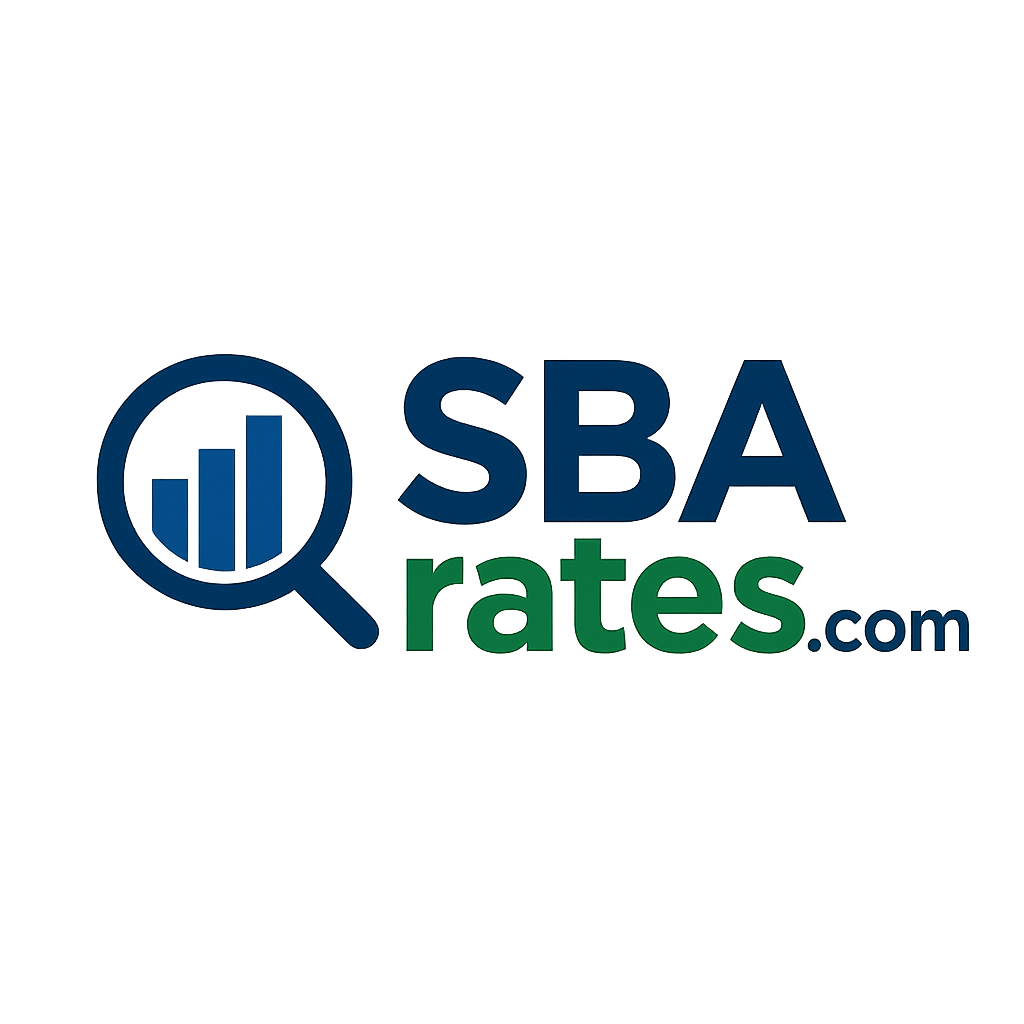Supermarkets and Other Grocery (except Convenience) Stores
445110

Plains State Bank (TX)
Plains State Bank’s goal is to create personal, professional, unique banking experience for small business owners throughout Texas. Our strengths are our people, our financing innovation, our flexible banking services, and technology.

PeopleFund (TX)
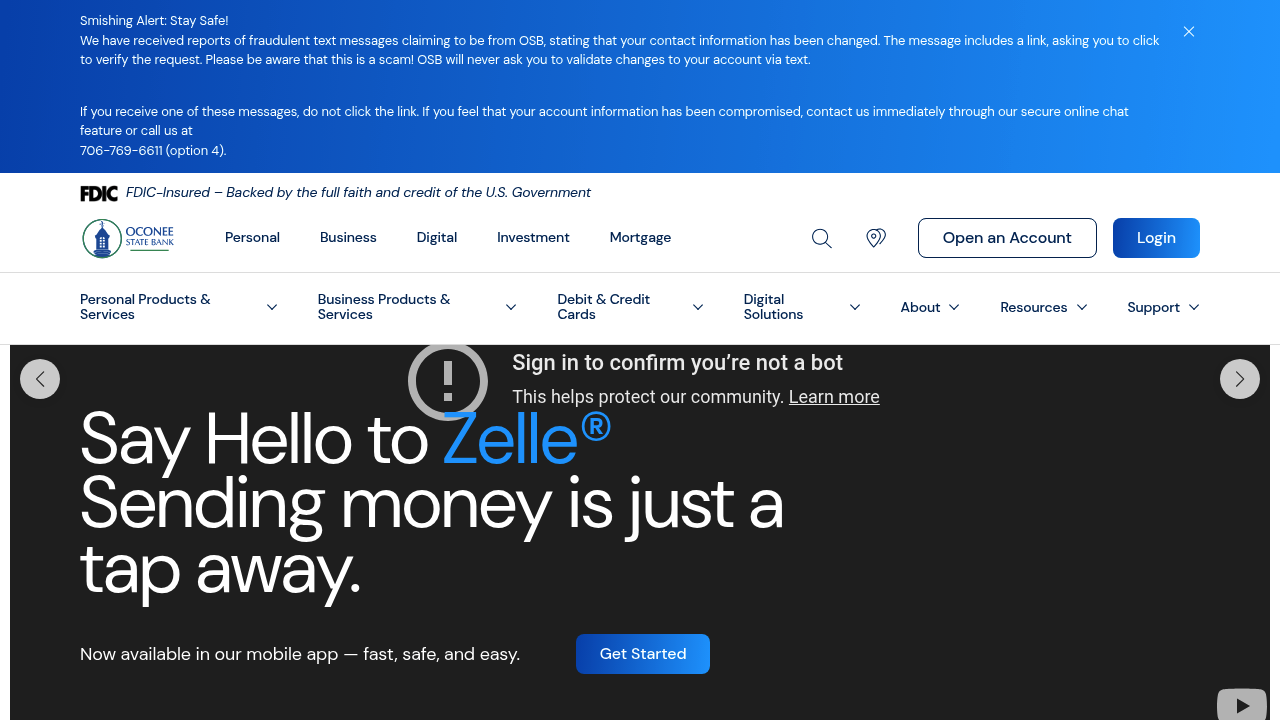
 Oconee State Bank (GA)
Oconee State Bank (GA)
One of the strengths of the bank, is its knowledge of its customers and focus on serving and taking care of its employees, customers, and community.
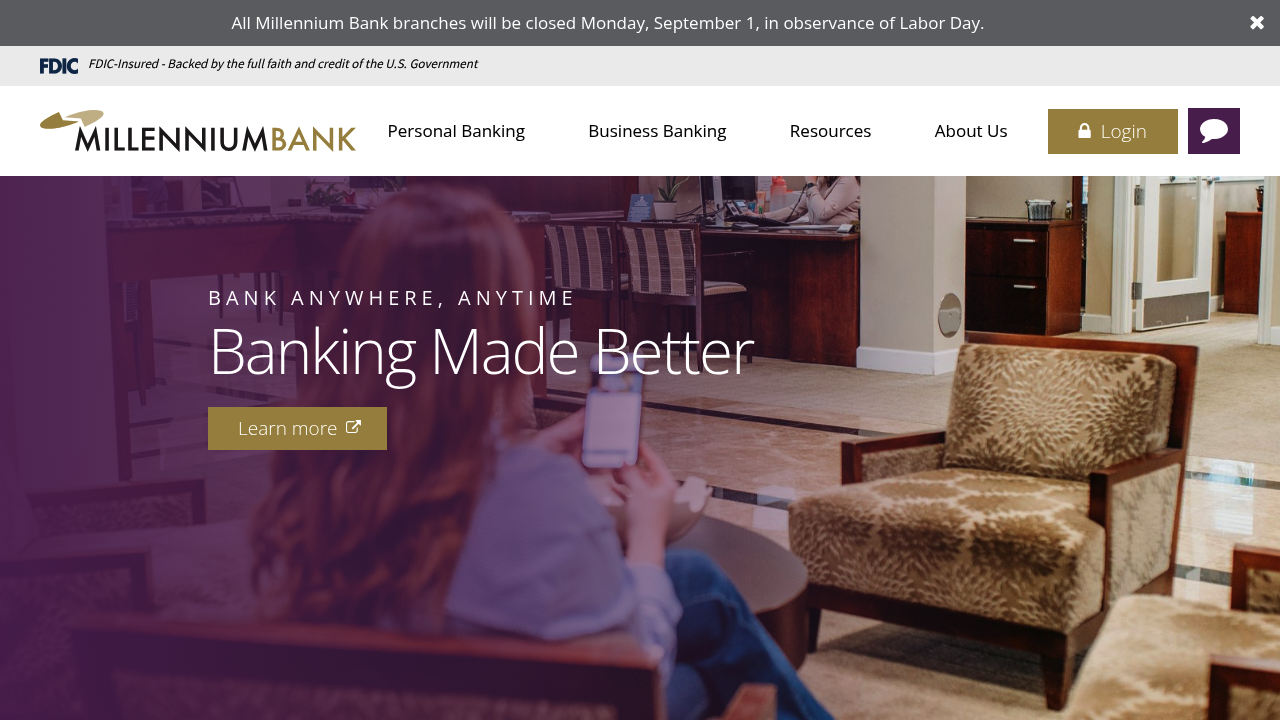
Millennium Bank (IL)
Home
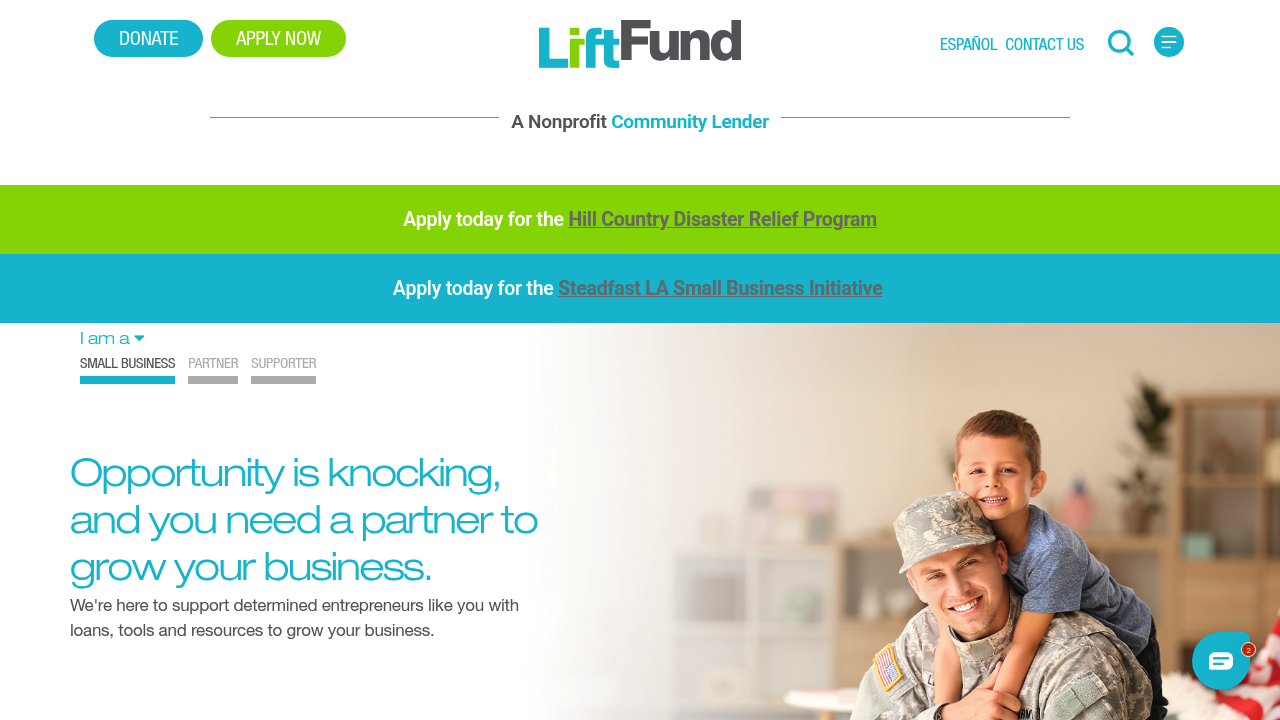
LiftFund, Inc. (TX)
Integrity Bank & Trust (CO)

Gibsland Bank & Trust Company (LA)
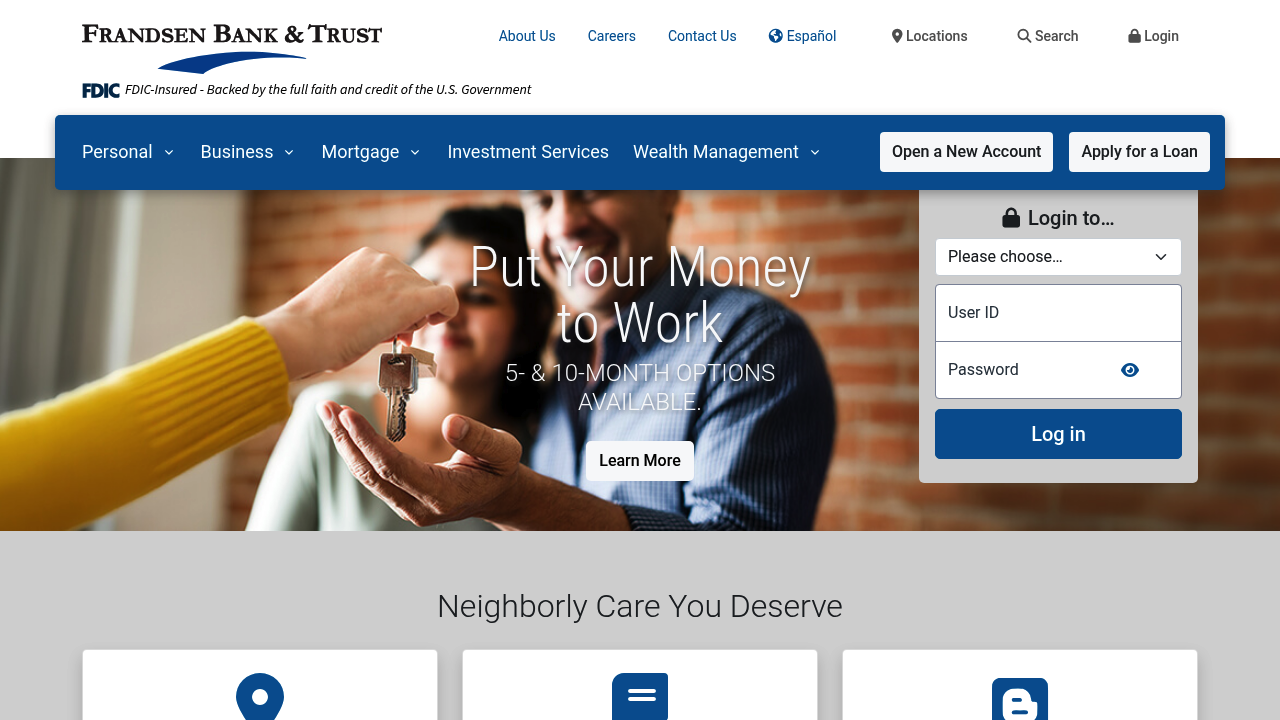
 Frandsen Bank & Trust (MN)
Frandsen Bank & Trust (MN)
Frandsen Bank & Trust is a full-service community banking, trust and investment services organization with offices located throughout Minnesota, Wisconsin, and North Dakota.
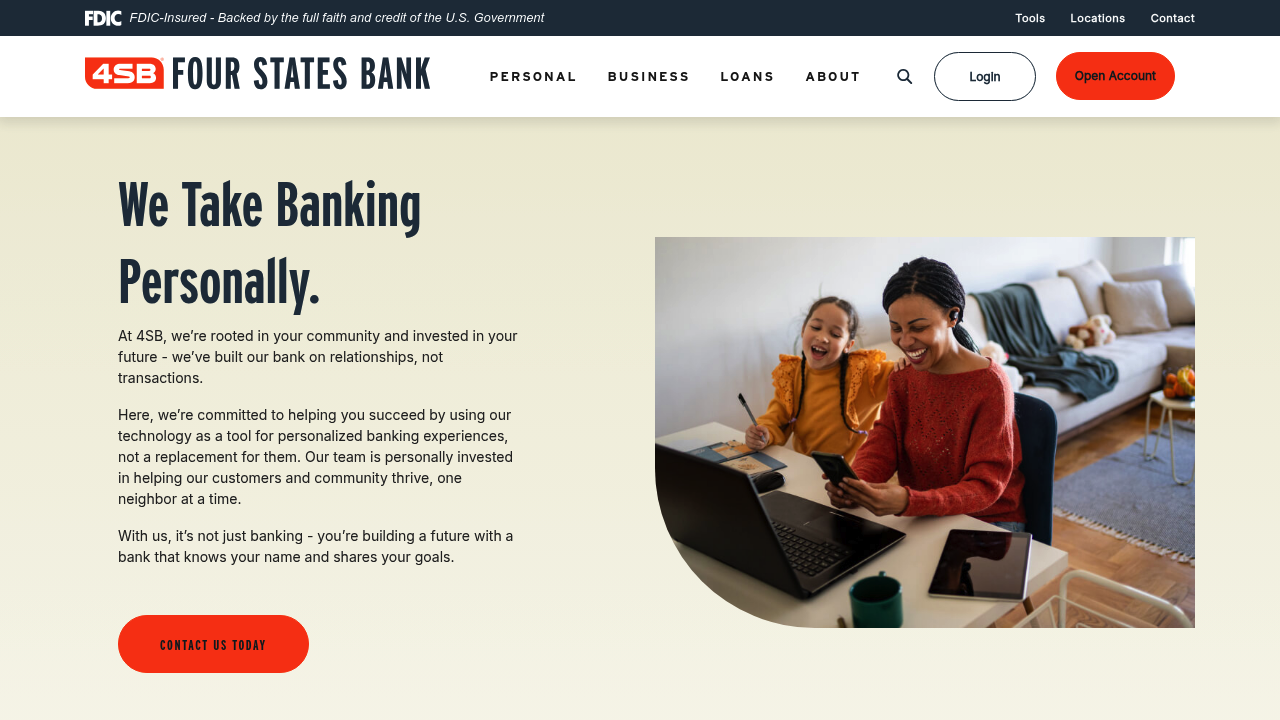
Four States Bank, Inc. (MO)

 First Security Bank and Trust Company (OK)
First Security Bank and Trust Company (OK)
First Security Bank is Oklahoma's only black owned bank. Our minority owned bank is a place where entrepreneurs can receive both banking services and support as well as engage in collaborative solutions. Whether you’re opening up a business or taking the next step to achieving your financial goals, our staff is here to help.
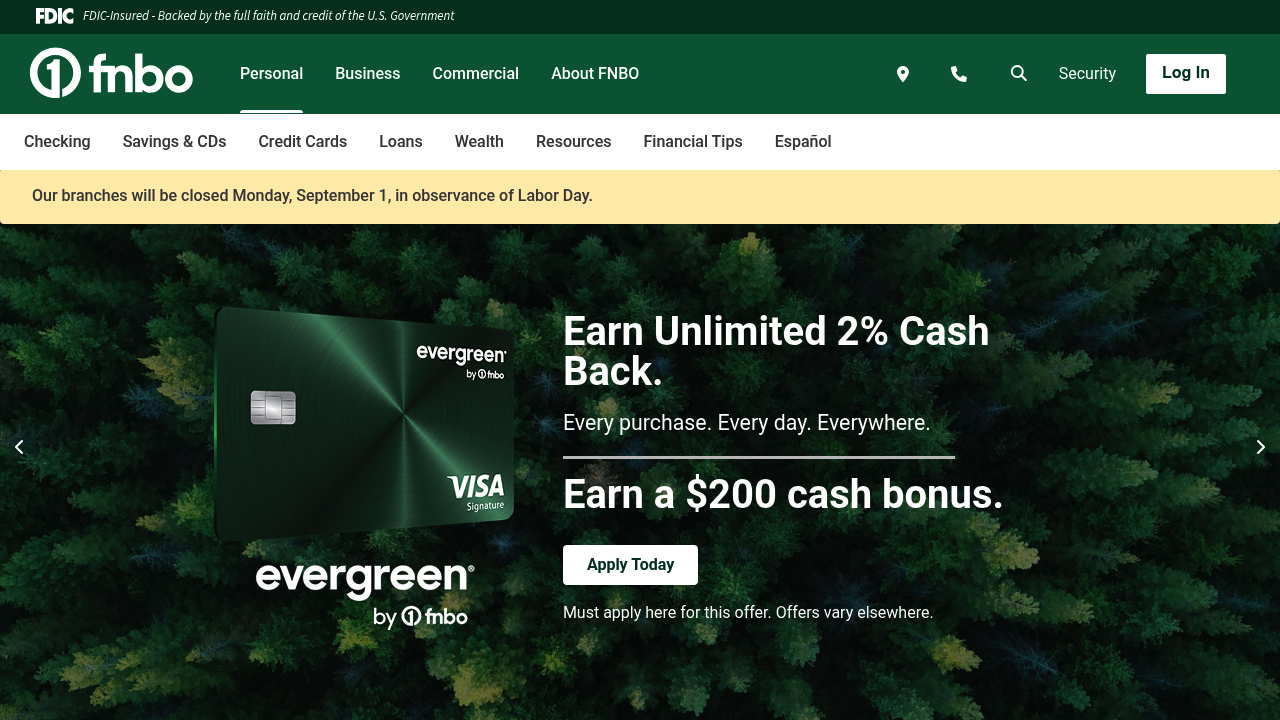
 First National Bank of Omaha (NE)
First National Bank of Omaha (NE)
FNBO offers personal, business, commercial, and wealth solutions with branch, mobile and online banking for checking, loans, mortgages, and more.
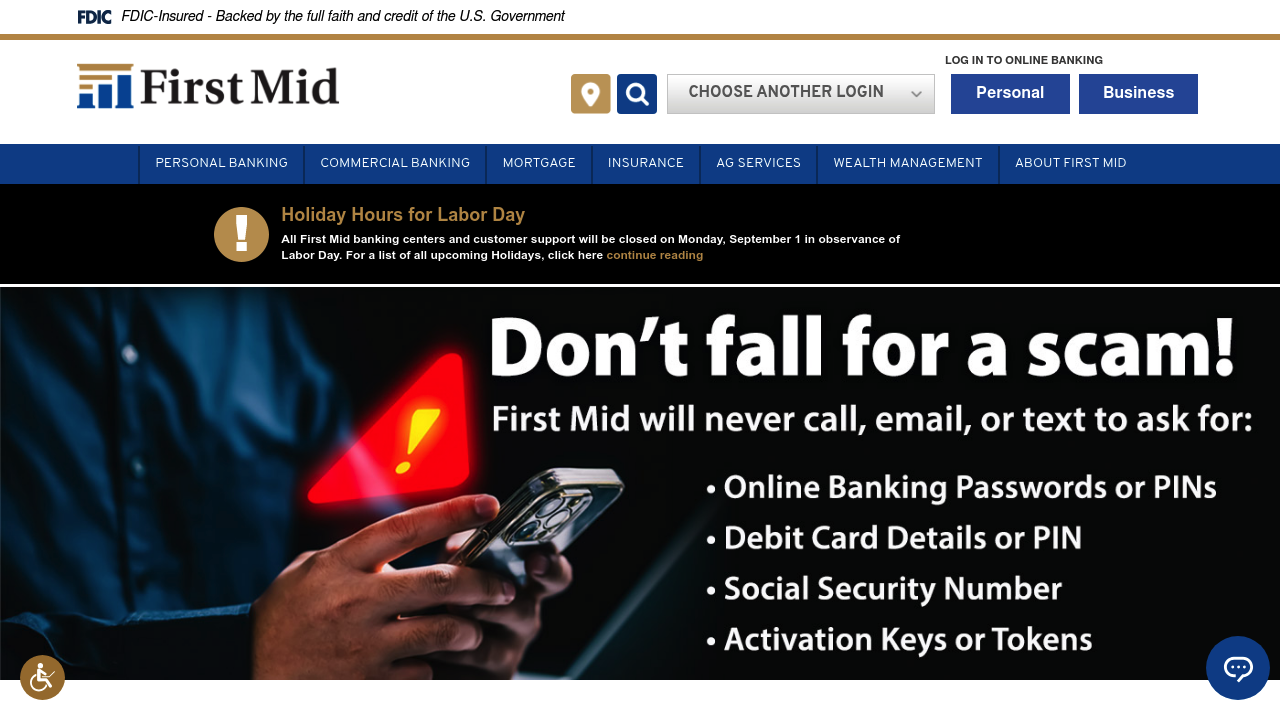
 First Mid Bank & Trust, National Association (IL)
First Mid Bank & Trust, National Association (IL)
First Mid Bank & Trust offers commercial & personal banking, insurance, & wealth management services throughout Illinois, Missouri, Texas & Wisconsin.
SBA Loans for Supermarkets and Grocery Stores: Financing Growth in Food Retail
Introduction
Supermarkets and grocery stores are at the core of American communities, providing fresh food, household staples, and essential goods for families every day. Classified under NAICS 445110 – Supermarkets and Other Grocery (except Convenience) Stores, this sector includes independent grocers, regional supermarkets, specialty food markets, and ethnic grocery stores. While demand for food remains constant, grocers face financial challenges such as inventory costs, razor-thin margins, labor, refrigeration equipment, and competition from large chains.
This is where SBA Loans for Grocery Stores can help. Backed by the U.S. Small Business Administration, SBA loans offer longer repayment terms, lower down payments, and government-backed guarantees. These loans allow grocers to expand stores, upgrade refrigeration, purchase bulk inventory, and stabilize cash flow to remain competitive in a demanding retail market.
In this article, we’ll explore NAICS 445110, the financial hurdles supermarkets and grocery stores face, how SBA loans provide solutions, and answers to frequently asked questions from food retail entrepreneurs.
Industry Overview: NAICS 445110
Supermarkets and Grocery Stores (NAICS 445110) include businesses such as:
- Independent grocery stores
- Regional and community supermarkets
- Ethnic and specialty food markets
- Organic and health-focused grocery retailers
- Wholesale-style grocers serving local communities
This industry is highly competitive, requiring grocers to balance quality, pricing, and service while controlling costs.
Common Pain Points in Grocery Store Financing
From Reddit’s r/smallbusiness, r/grocery, and Quora discussions, grocers often highlight these challenges:
- Inventory Costs – Stocking shelves with fresh produce, meats, and packaged goods requires large upfront capital.
- Equipment & Refrigeration – Freezers, refrigerators, and shelving units are expensive and energy-intensive.
- Thin Profit Margins – With strong competition, grocery stores must manage tight margins carefully.
- Labor Expenses – Recruiting and retaining workers for stocking, cashiers, and customer service is costly.
- Cash Flow Gaps – Payment delays from suppliers or fluctuations in customer demand create liquidity issues.
How SBA Loans Help Grocery Stores
SBA financing provides affordable, flexible capital that allows grocers to invest in facilities, expand inventory, and strengthen cash flow.
SBA 7(a) Loan
- Best for: Working capital, payroll, marketing, or refinancing debt.
- Loan size: Up to $5 million.
- Why it helps: Provides liquidity for supplier payments, payroll, and operating costs.
SBA 504 Loan
- Best for: Real estate and refrigeration equipment.
- Loan size: Up to $5.5 million.
- Why it helps: Ideal for purchasing store locations, expanding facilities, or upgrading refrigeration systems.
SBA Microloans
- Best for: Small or startup grocery retailers.
- Loan size: Up to $50,000.
- Why it helps: Useful for signage, shelving, or small-scale inventory purchases.
SBA Disaster Loans
- Best for: Stores impacted by natural disasters or emergencies.
- Loan size: Up to $2 million.
- Why it helps: Provides recovery funds for damaged inventory, lost revenue, or facility repairs.
Step-by-Step Guide to Getting an SBA Loan
- Check Eligibility – Must be a U.S.-based, for-profit grocery business with good personal credit (typically 650+).
- Prepare Financial Documents – Include tax returns, P&L statements, supplier agreements, and inventory records.
- Find an SBA-Approved Lender – Some lenders specialize in retail and food service financing.
- Submit Application – Provide a business plan with customer demographics, product mix, and growth strategies.
- Underwriting & Approval – SBA guarantees reduce lender risk. Approval typically takes 30–90 days.
FAQ: SBA Loans for Supermarkets and Grocery Stores
Why do banks often deny loans to grocery stores?
Banks may view grocers as risky due to high inventory costs, thin margins, and competitive pressures. SBA guarantees reduce this risk and improve approval chances.
Can SBA loans finance refrigeration and store equipment?
Yes. SBA 7(a) and 504 loans can fund freezers, shelving, refrigeration units, and energy-efficient upgrades.
What down payment is required?
SBA loans usually require 10–20% down, compared to 25–30% with conventional loans.
Are startup grocery stores eligible?
Yes. Entrepreneurs with supplier relationships and solid business plans may qualify for SBA financing.
What repayment terms are available?
- Working capital: Up to 7 years
- Equipment/facilities: Up to 10 years
- Real estate/store buildings: Up to 25 years
Can SBA loans help grocers compete with big-box retailers?
Absolutely. Many independent grocers use SBA loans to expand product offerings, improve customer service, and strengthen their brand presence.
Final Thoughts
The Supermarkets and Grocery Stores sector is vital to communities but faces financial hurdles tied to inventory, equipment, and competition. SBA Loans for Grocers provide affordable, flexible financing to stabilize operations, expand facilities, and strengthen customer relationships.
Whether you operate a small ethnic food market or a regional supermarket, SBA financing can provide the resources you need. Connect with an SBA-approved lender today and explore your funding options in food retail.
Filters
Tags
#Preferred Lenders Program
#SBA Express Program
#Existing or more than 2 years old
#Startup
#Loan Funds will Open Business
#Fixed Rates Startup
#Change of Ownership
#New Business or 2 years or less
#7a General
#Variable Rates
#Fixed Rates
#Standard Asset Base Working Capital Line of Credit (CAPLine)
#International Trade Loans
#Export Express
#7a with WCP
#Contract Loan Line of Credit (CAPLine)
#7a with EWCP
#Unanswered
#Preferred Lenders with WCP
#Preferred Lenders with EWCP
#Seasonal Line of Credit (CAPLine)
